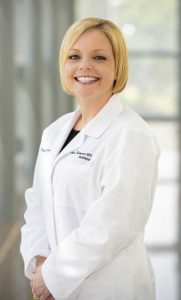By Jesse M. Conyers, MD
The prevailing feeling among radiology residents during the novel coronavirus (COVID-19) crisis can be summed up in one word: uncertainty. The COVID-19 pandemic has destabilized our society, and its effects on radiology resident education and training have been incredibly profound.

As a chief resident, I hear concerns from residents at every level of training. First-year residents are concerned about learning foundational knowledge and being prepared for taking call. Second-year residents are worried about how the COVID-19 crisis will affect their rotation schedules, American Institute for Radiologic Pathology (AIRP) experience, and fellowship applications. Third years also experience anxiety about the ABR Core Exam, which has been postponed to November, as well as concerns about mini-fellowships, research, and senior elective opportunities. Senior fourth-year residents are worried about the effects at the end of their residency training, including graduation requirements, relocation for fellowship, and fellowship preparation. Further, interventional radiology residents have unique concerns about patient contact, exposure risks, and the availability of personal protective equipment (PPE), as well as the impact on their procedural skills training, as treatment for nonemergency cases has largely been canceled or postponed. In addition to the long list of uncertainties about radiology education and training, concerns about resident wellness and mental and physical health are at the forefront of everyone’s minds as the number of COVID-19 cases increases at an alarming rate across the country.
At the same time, however, I have seen incredible camaraderie and resilience among radiology residents. The use of video conferencing and online educational resources has transformed the platform for radiology education forever. Residents have used social media to spread the word about livestream conferences and web-based lectures, share interesting cases and educational materials, communicate safety guidelines and society recommendations, and promote social responsibility. Residents from across the country have compiled an extensive list of free online radiology education resources, which is available through the American College of Radiology Resident and Fellows Section (ACR RFS). Additionally, chief residents have worked together to share COVID-19 resident emergency response plans, details about faculty and resident coverage, institutional COVID-19 policies and procedures, and availability of PPE. At their own institutions, residents have worked together to ensure radiology service coverage while minimizing exposure risk, crowdsource local donations for PPE, and even distribute PPE materials to hospital employees. Perhaps the most admirable thing I’ve seen from radiology trainees during this COVID-19 crisis is residents who have put their radiology education on hold and stepped up to provide patient care on nonradiology clinical services. In my mind, these residents are truly #HealthCareHeroes.
In every corner of the United States, residents are rising to unparalleled challenges despite overwhelming feelings of uncertainty. While there are many answers I do not have and many things I feel uncertain about during this time, there is one thing of which I am certain — radiology residents will get through this together (… apart).
Jesse Conyers, MD, is a PGY-5 chief resident at the University of Texas Southwestern Medical Center in Dallas. She will be moving to Atlanta to join Emory University for a breast imaging fellowship in July. Jesse is passionate about radiology leadership and advocacy, supporting women in medicine, and promoting diversity and equality. She dabbles in social media and can be found on Twitter @jesse_conyers.


